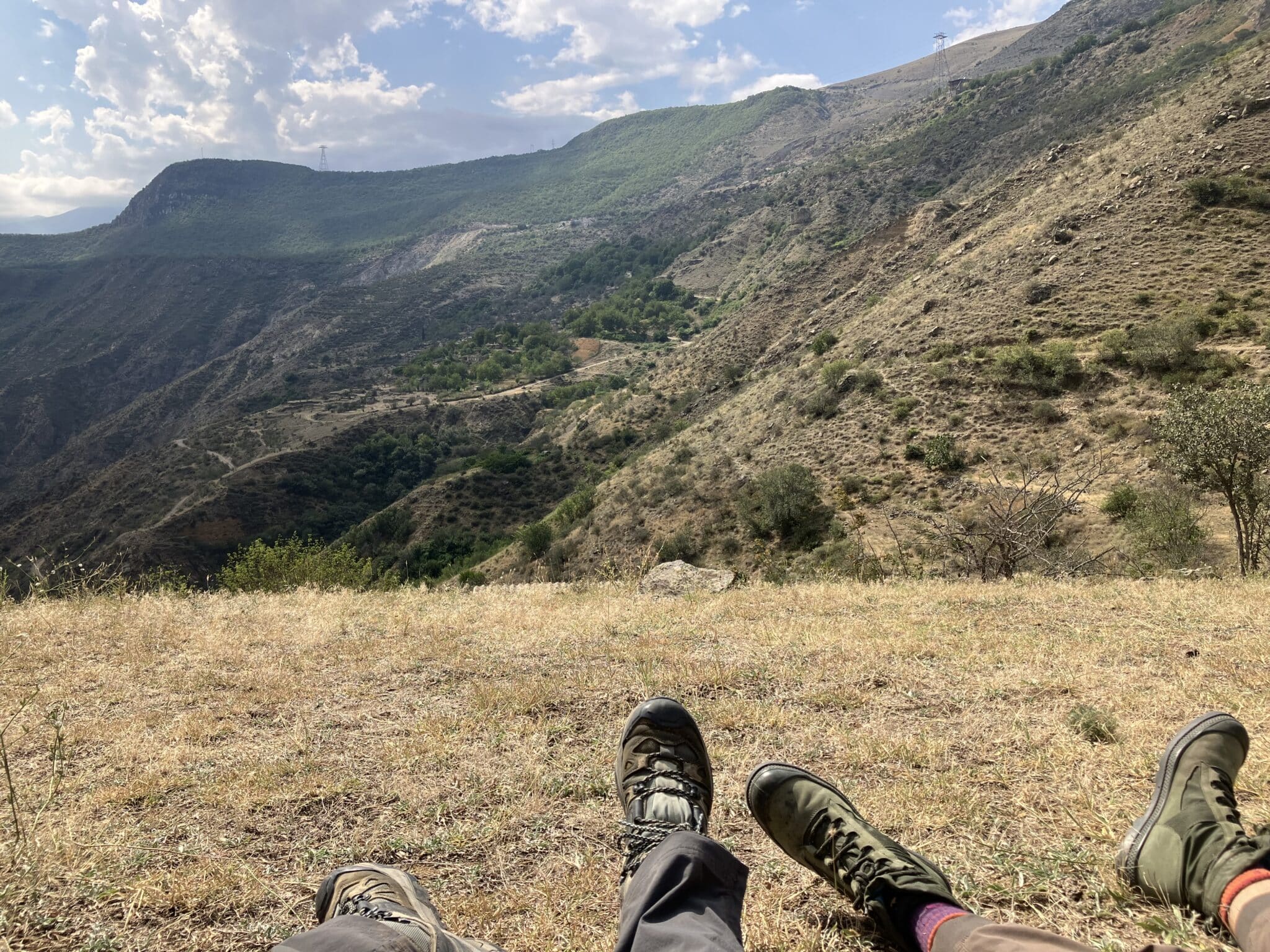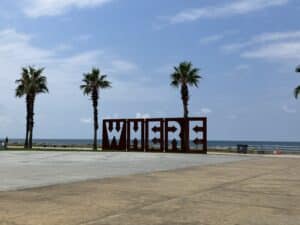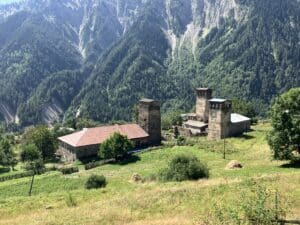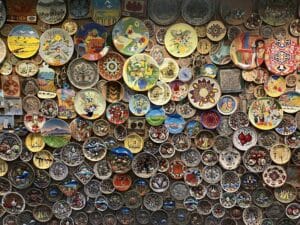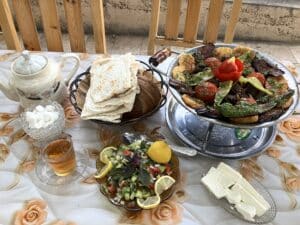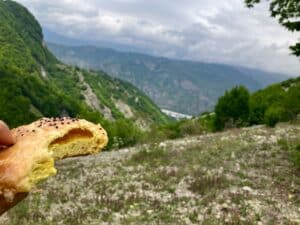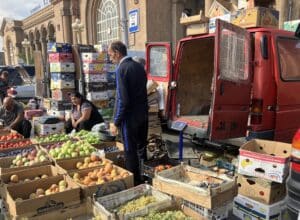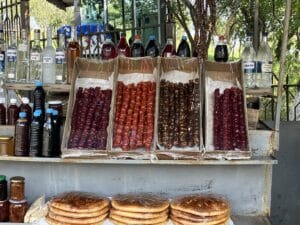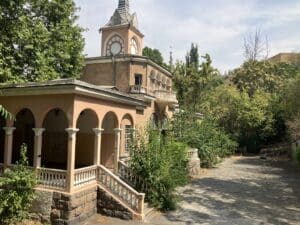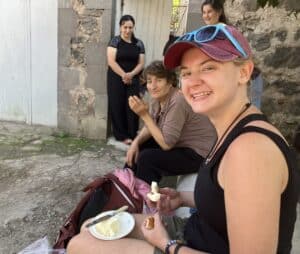Summer of 2023 – a summer I spent as a solo female budget backpacker traversing across the three Caucasus republics of Azerbaijan, Georgia, and Armenia. My trip focused on hiking and meeting locals in these three very different countries. It was arguably the most ambitious and most rewarding undertaking of my life so far, and I would do it all over again in a heartbeat.
This article will provide an overview of the trip and general commentary. Separate articles will discuss the specifics of Azerbaijan, Georgia, and Armenia.
Why I Went
To say that I am obsessed with the Caucasus is an understatement. My infatuation with this region began when I studied abroad in Georgia on the SRAS Russian as a Second Language program in Batumi. It was my first time traveling internationally in five years, in part because I had not been able to afford it and in part because of the coronavirus pandemic. Those two months in Georgia reminded me how much I love exploring new places, meeting new people, and discovering new hiking trails. At the end of that experience in 2022, it was a mere thought I shared with my friend on the Batumi pier – “Wouldn’t it be cool if I went to each Caucasus country and spent a month there?” As time went by, this idea quickly turned into a goal.
The people, the cultures, the friendships, the mountains and nature, the character development, the real life education, the challenges, the stories, the escape, and the unforgettable memories – this is why I travel. Traveling is not vacationing – traveling is a deep cultural immersion where you end up doing things and going places you hadn’t planned because you’re engaging with locals, staying within a budget, and coping with daily challenges in a foreign land and often in a foreign language.
There are many ups and downs to budget traveling, but it is, in my view, the most real and memorable style of travel out there.
Planning
I began planning this trip eight months in advance because I was so excited at the idea of a big solo trip revolving around hiking. You don’t necessarily need that much time to plan a trip, but don’t underestimate its importance.
Cost is the main thing to plan for. My preferred way for quickly getting an idea of how much a trip will cost me is to look at prices on Booking.com and Hostelworld.com. Cheaply priced, quality accommodation typically pairs with cheaper food and general living costs. Hostels are also the way to go! You meet other backpackers who are traveling just like you, usually have locals hosting you, you get a shared fridge and kitchen, and it’s cheap.
Itinerary is the second main aspect of planning – and is the fun part! There is no shortage of online itinerary ideas for any location. You can follow these or easily tailor them to fit your schedule and preferences. Set goals for your trip – ask yourself what you want to accomplish. My passion is hiking, so my itinerary was based on getting to hiking trails. Be sure to include rest days even if you’re doing something less physically intensive – travel exhaustion is real!
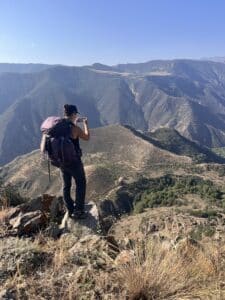
The third part of planning is safety. It is a common concern for new travelers, especially females, but to be honest it is not as intimidating as many make it seem. I did not carry any self-defense products (i.e. pepper spray) in the cities as a solo female. The Caucasus are known for having some of the most hospitable people, and this is certainly true. While I was hiking, I had a pocket knife on me, but I would advise this in general when you are hiking in remote locations. Avoid dark allies at night, remove yourself from heated conversations on politics, don’t have unnecessary interactions, dress according to the environment, and you should not have much to worry about. Don’t stay in or put yourself in an environment that makes you uncomfortable. The most caution should be exercised in remote locations. Some other tips:
- Have a person, such as a family member or friend, who you continuously update on your location.
- Know the address and contact of the closest US embassy to where you will be staying.
- Enroll in STEP (Smart Traveller Enrollment Program). This is a free service offered by the U.S. Department of State that will send you important information when safety concerns arise in your destination, offer emergency support, and assist in family contact in case of emergency.
Overall Costs
I spent four weeks in Azerbaijan, five in Georgia, and three in Armenia. I am very frugal and often choose cheap hostels, eat the same street and grocery store food for days on end, and occasionally hitchhike to get to places. It is something that requires extremely low standards and getting used to; most of the time it is not a comfortable way of living. If this style of life sounds unreasonable, I would budget at least $200 above what is listed.
- Accommodation: $810 ($270/month)
- Food: $640 ($213/month)
- Transport: $235 ($78/month)
- Total for basic living: $1685 ($561/month)
- Miscellaneous, emergency, other: $370 ($123/month)
- Total: $2055 ($684/month)
For a side-by-side comparison, here is my by-country breakdown (excluding airfare):
| Azerbaijan (4 wks) | Georgia (5 wks) | Armenia (3 wks) | |
| Accommodation | $210 | $350 | $250 |
| Food | $190 | $250 | $200 |
| Transport | $70 | $120 | $45 |
| Miscellaneous, emergency, other | $130 | $45 | $175 |
| Total | $600 | $765 | $670 |
Here are some tips I’ve learned for lowering costs and managing your budget:
- Accommodation: make friends along your journey and build your network! You never know where you’ll be at what point. Local friends may be able to refer you to cheap accommodation options that aren’t easily found online. Better yet, they may even offer to host you or refer you to someone that can. For example, I became friends with an Azerbaijani at my hostel in Baku who hosted me for a bit in his hometown later that month, showed me around the city, and introduced me to many of his local friends.
- Food: street food and grocery stores are your best friends. Restaurants are expensive for what you get and, to be honest, make your experience more touristy. If you want as authentic an experience as possible, go to the local fruit markets and grocery stores and use restaurants as a treat. If your goal is to explore food culture, this may not apply to you as much – but know that a lot of the best regional dishes are still available as street food and often available in local markets as well!
As a traveler, you should always carry some cheap, non-perishable foods that offer quick and easy nutrition. Every traveler has a different idea of what that looks like, but my food stuff sack (link for my specific one) typically contains quick oats or bread, lentils, protein bars, dates, dark chocolate, peanut butter, and an emergency ramen pack.
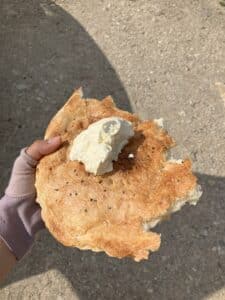
The important thing when assembling your food sack is to pick foods that hit the main macronutrients (carbohydrate, protein, fat) so that your body can recover from activity and so that you manage your hunger levels better (nutrition is a key component of backpacking!). Especially if you’re trekking for multiple days, you are more likely to be in a calorie deficit which can make it harder for your body to recover. So make sure you eat well and carry multi-vitamins if needed!
- Transport: learn the transportation system of your area. Countries in Europe, for example, have great bus and train networks. The Caucasus and Central Asia use mini buses called marshrutkas for city-to-city travel, while buses and metros are more common in the capital cities. Bolt and Yandex are by far the cheapest taxi options, providing 20-minute rides for $5. Hitchhiking is also a possibility, and I’ve done it a couple times. However, I would not do anything you don’t feel comfortable with. I have hitchhiked with lovely Swiss van travelers and local families as well as a middle-aged man who stranded me on the road after I said no to sex. So, consider the environment and use your judgment. You can also leverage your contacts with transport. Someone I met in Baku had a cousin with whom I drove to Ismailli which saved me a lot of money on my way to Sheki.
Another tip for travel between countries – use land borders! They are so much cheaper and easier than planes. In Azerbaijan, I took a minibus from Sheki to Zaqatala followed by a shared taxi to the Azerbaijan-Georgia border all for less than $15, crossed through security, then walked an hour on the Georgian side before I reached a city with more transportation options. When I traveled from Georgia to Armenia, I took a bus from Tbilisi to Yerevan for $19.
- Miscellaneous: you will – and should – want to occasionally treat yourself, and you will likely have emergency expenses like having to buy an umbrella or even visiting a local health clinic. Some of my “treats” and additional expenses – included in the budget above – included a day-tour, extra hiking gear, concert tickets, and a massage. You should also dedicate a portion of your money for emergencies – it’s good to have a sum hidden somewhere in your luggage or on your person. In my case, I went to the hospital in Georgia because of malnutrition from not feeding myself well enough. This was certainly unplanned but necessary (and honestly avoidable if I’d taken better care of myself).
- Gear: invest in good gear. High-quality gear is durable, reliable, and has high performance. Yes, it can be expensive, but it will save you in the long run. It is better to pay more for a backpack now than to deal with back pain later. Your backpack and shoes are the most important pieces of gear. You need a pack with good back and waist support (Osprey Aura AG 65L is the one I use) and shoes with high ankle support and cushion since you will be carrying that heavy backpack around. If you are not trekking, you may not need as big of a pack, so keep that in mind (a 45L would probably be perfect for urban backpacking). Other things I highly recommend – packing cubes to easily compress and store your luggage and a LifeStraw water bottle to worry less when drinking from water sources you’re unsure about. I suggest checking credible third-party sellers such as Amazon to see if you can get your gear at a discount (I did this for my backpack).
Takeaways
This was the first major solo trip I have done, so there were many lessons for me to learn that I implemented as my trip progressed.
The first lesson was to travel slowly. It is better to savor fewer places than to rush through many. We don’t always have the opportunity to take long periods of time off to travel, but even if you only have one or two weeks I promise it’s better to enjoy a couple places instead of trying to move on to a new city everyday. Don’t waste your time in transport, and dedicate enough time to soak in a place beyond the “wow this is so cool” phase you will likely get upon arrival. If you are long-term traveling, changing locations too fast is one of the easiest ways to get travel exhaustion.
Second, take advantage of free walking tours.They are offered in all the capitals I have visited and are a great way to become acquainted with a new place within just a couple hours. Do them on the first day to get an idea of the general layout of the city. Then, you can take as many days as needed to explore the locations you find interesting. The tour guides can also provide you with restaurant and market recommendations and will gladly answer any questions you have. It is worth noting that many of these guides work for tips, so I would come prepared to offer a token of your appreciation, even if it’s small. The guides have been understanding of everyone’s budgets in my experience; I usually left a couple US dollars’ worth.
Third, skip the paid, touristy stuff. I paid to go see some mud volcanoes in Azerbaijan early on and found that it only detracted from the local experience. I very gladly would have spent that entire day with the locals at my hostel in Baku. Unless something really fits your travel goals or is truly special, don’t do it. Especially if you are looking to experience local life, you’ll want to go to places that aren’t “marketed.” Of course, some places can only be reached as part of a tour, and it may be worth paying a little extra in that case, but don’t feel the need to do a paid tour “just because.”
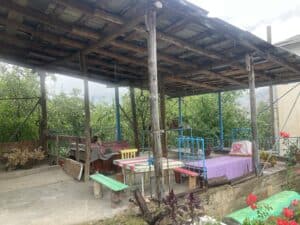
Fourth, stay flexible. You will fall in love with places you visit and people you meet. You will want to stay somewhere longer and be around a person longer. And that’s ok – that’s the beauty and fun of travel! I would encourage anyone making a travel itinerary to include a couple buffer days to account for spontaneity. I stayed three extra days in Azerbaijan and frankly would have stayed longer if my visa wasn’t on the verge of expiring. I wish I had had time at the end of my trip to stay in Yerevan another week, but unfortunately I had already bought my plane ticket well in advance.
Fifth, take care of your health. This seems very obvious, but if you are a budget traveler you will be tempted to cut corners. Make sure you are eating enough good-quality food, getting enough nutrients, and staying hydrated. I began slacking on my nutrient diversity in Georgia because I was refusing to pay above a certain (and arguably unreasonably low) price for food. This severely backfired on me a couple weeks later when I ended up in the hospital with low hemoglobin levels. Those are extra expenses in time and money you can easily avoid.
Lastly, do your research. You should, as most guides tell you, learn the basics of “hello,” “thank you,” and “yes/no.” But beyond that, spend some time trying to understand the history and current politics of the country and region you are going to. This can also make you a much more polite and sensitive conservation partner. It can also help with safety by keeping you away from what might be trouble zones. Azerbaijan and Armenia, for instance, have been enemies for decades and have engaged in war several times over the ethnically Armenian region of Nagorno-Karabakh/Artsakh which was de facto independent but internationally recognized as part of Azerbaijan. Because I knew that tensions were high, I declined an offer to drive to the viewpoint of the corridor to Nagorno-Karabakh. The day after I left Armenia, Azerbaijan attacked and ended the enclave’s de-facto independence. At the same time, know that tensions along a border don’t necessarily translate to a need to avoid an entire country – even small countries are fairly big in terms of having high risk and low risk areas and how quickly a conflict might spread should it erupt. And it doesn’t mean you should not talk about these things with locals; it’s an incredible learning experience. Just be aware and respectful of the sensitivity surrounding the topic.
I would like to emphasize that there is such a thing as traveler etiquette/community. If people show you kindness, show them kindness in return. If someone offers you to stay at their house for a couple days, don’t use that just as a way to get free accommodation. These friendships are valuable to us as people; take care of those who take care of you.
In short, set goals for your travel and plan well to ensure your goals are met, your budget is kept, and your health and safety maintained. Be conscious of the local situation not only for your own safety, but also because it will greatly inform your time abroad and greatly increase what you can further learn from it! In my next three articles, I’ll cover some specifics of Azerbaijan, Georgia, and Armenia. I hope you’ll keep reading – and keep traveling!
You’ll Also Love
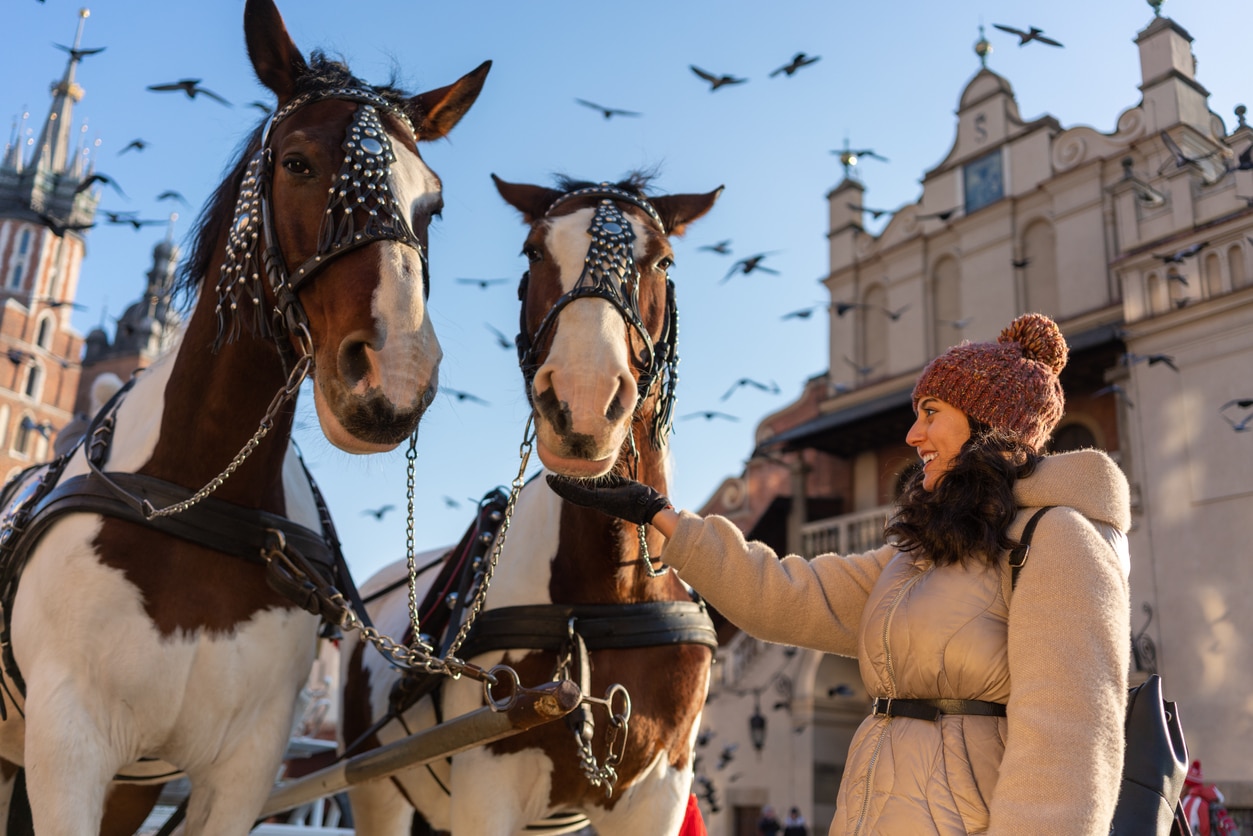
Krakow: A Trip to Poland’s Cultural Capital
Kraków is Poland’s most visited city and is known as the county’s cultural capital. Krakow’s old town was one of the first UNESCO World Heritage Sites, is a UNESCO City of Literature, and offers amazing architecture, history, and food. Just 2.5-3 hours from Warsaw, you take in many of the major sites in three days […]
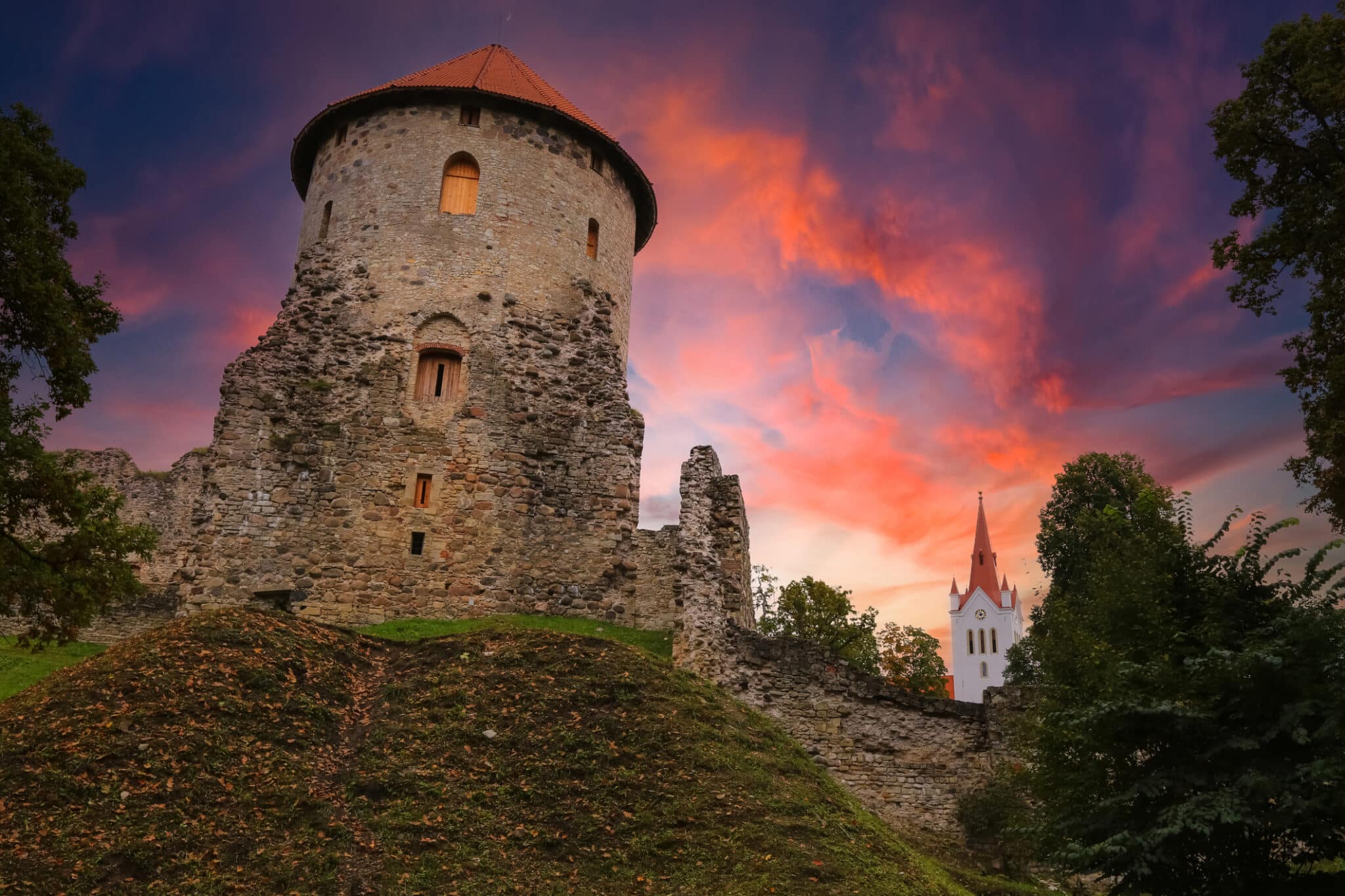
Five Great Day Trips from Riga, Latvia: Hiking, Castles, Caves, and More
Latvia is small country with a long history. Just outside the Riga lie a number of great sites to see – from sandy beaches to medieval castles and from majestic national parks to places literally straight out of fairy tales. See below for a small selection to get you started! Cesis: A Medieval Town […]
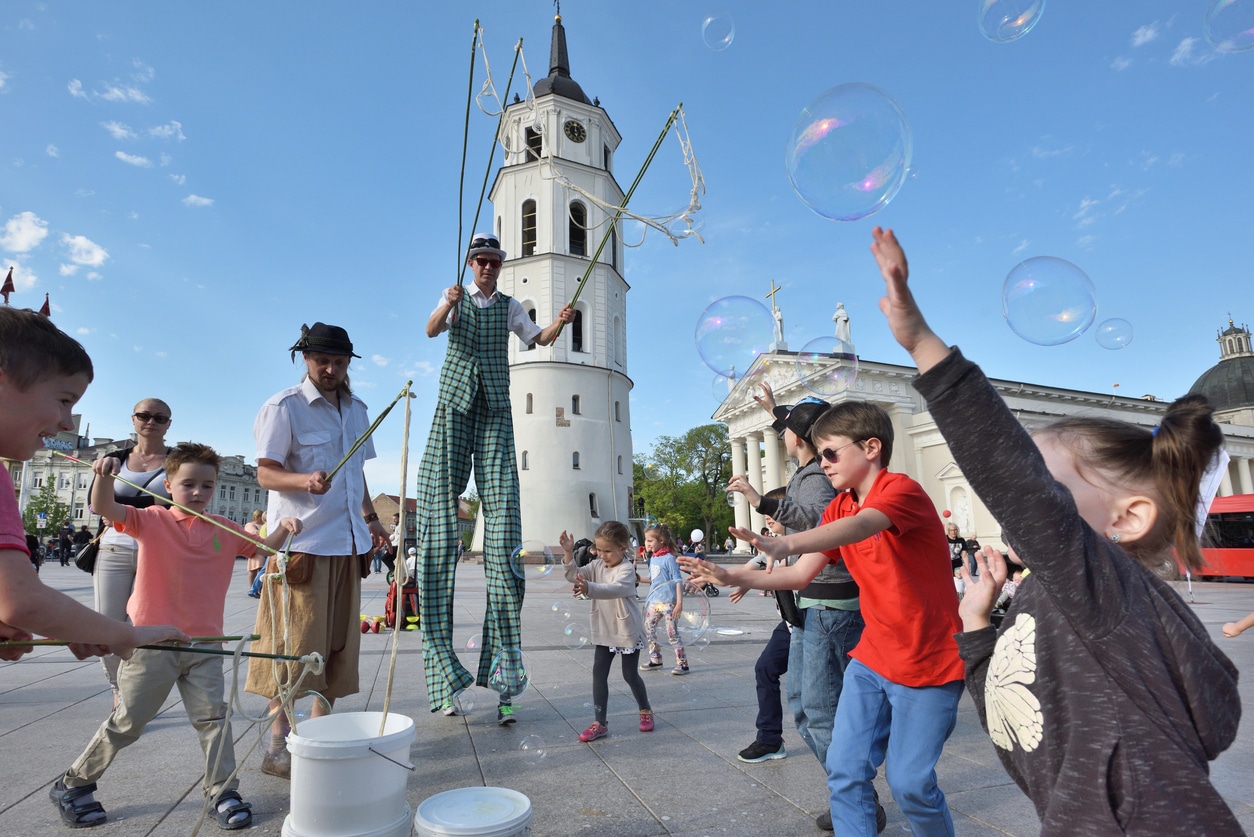
Weekend Trip to Vilnius from Riga
Vilnius is a fairly cheap 4-hour bus ride from Riga. Making that trip give you the opportunity to see another side of the rich cultural heritage of the Baltics. With affordable housing options like the Downtown Forest Hostel, you can easily immerse yourself in Vilnius’s historic Old Town. Planning your trip around the last Sunday […]
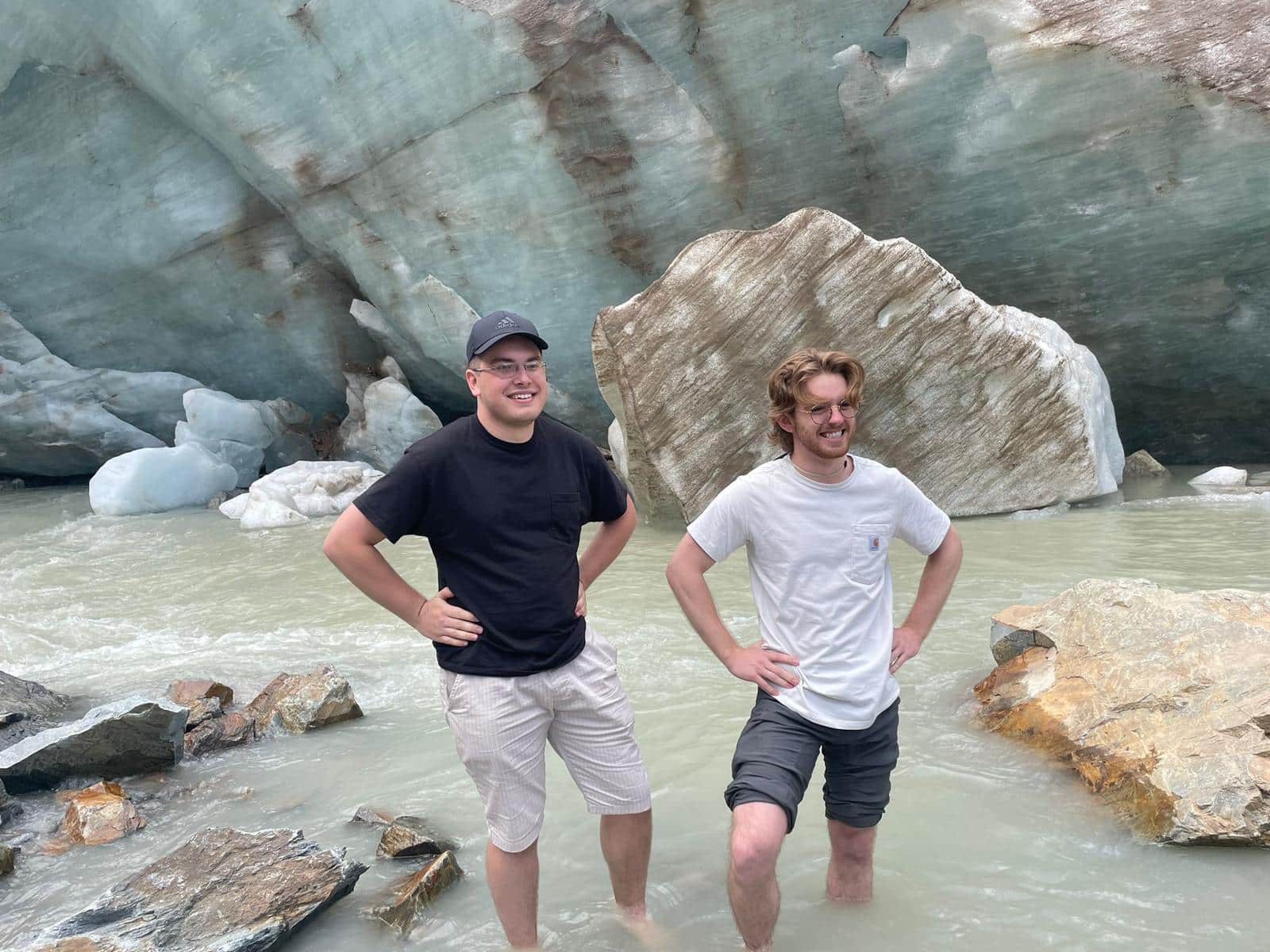
Svaneti: Glaciers, Salt, and Experiencing Rural Life in Georgia
As part of the SRAS/NovaMova study abroad program in Georgia, we had a weekend excursion to Svaneti during our third week. We had previously spent time in a couple different regions and cities, including Tbilisi, Mtskheta, and Khareba, but this was the first time our group saw the mountains of Georgia, a true natural wonder. […]
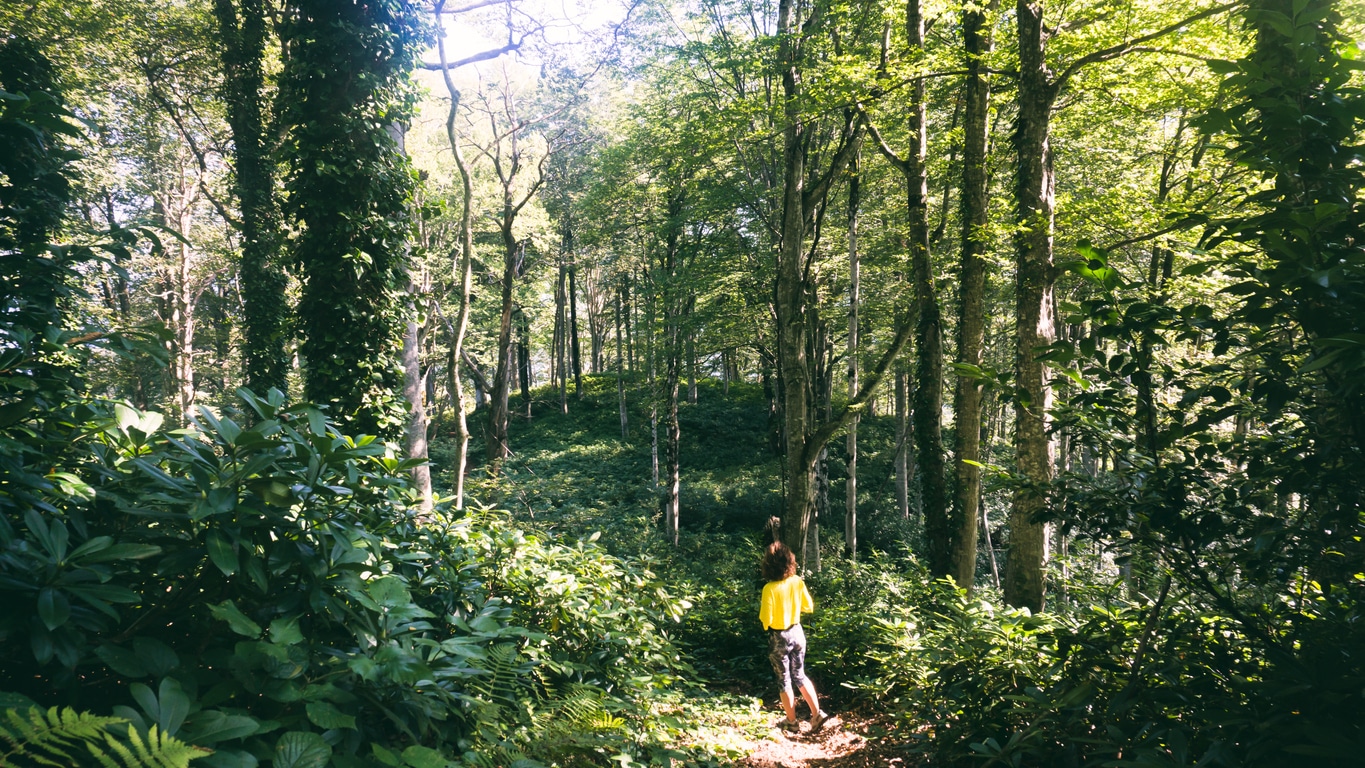
Camping in a Georgian Rain Forest: Mtirala National Park
Mtirala National Park is a vast rainforest between the Black Sea and the Adjara Mountains. The surrounding mountain areas in the Greater and Lesser Caucasus create an environment prone to severe humidity. The name “Mtirala” means “to cry” in Georgian and is derived from the annual rainfall of 4-4.5 meters. Not only is this one […]
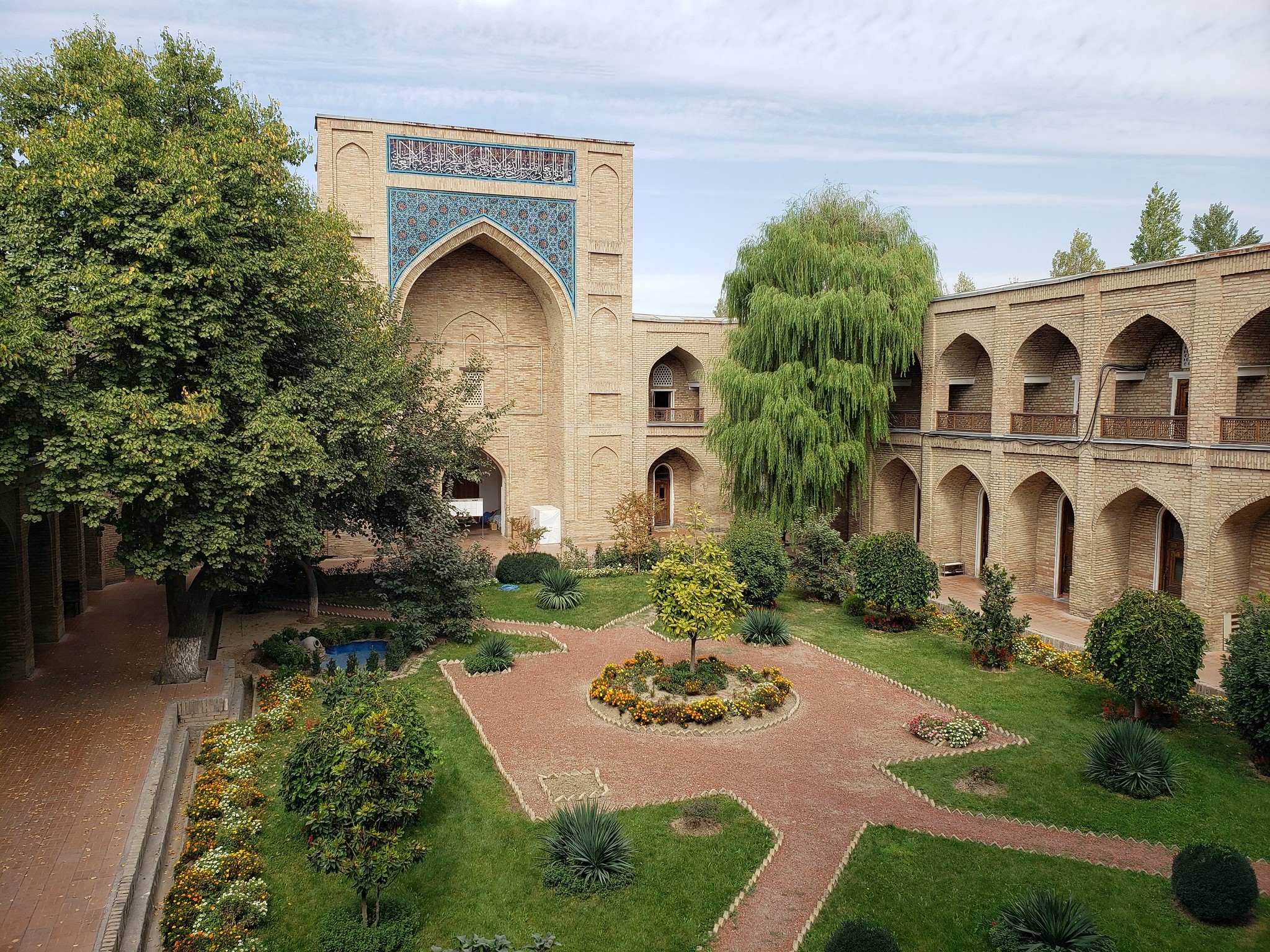
Guide to Travel to Tashkent
My Central Asian Studies Program with SRAS in Bishkek included a fantastic 9-day trip to the major Silk Road cities of Uzbekistan—Khiva, Bukhara and Samarkand—which was book-ended by visits to Tashkent. At the end of my program, I made the trip to the capital of Uzbekistan again, this time independently. I stayed there for three […]
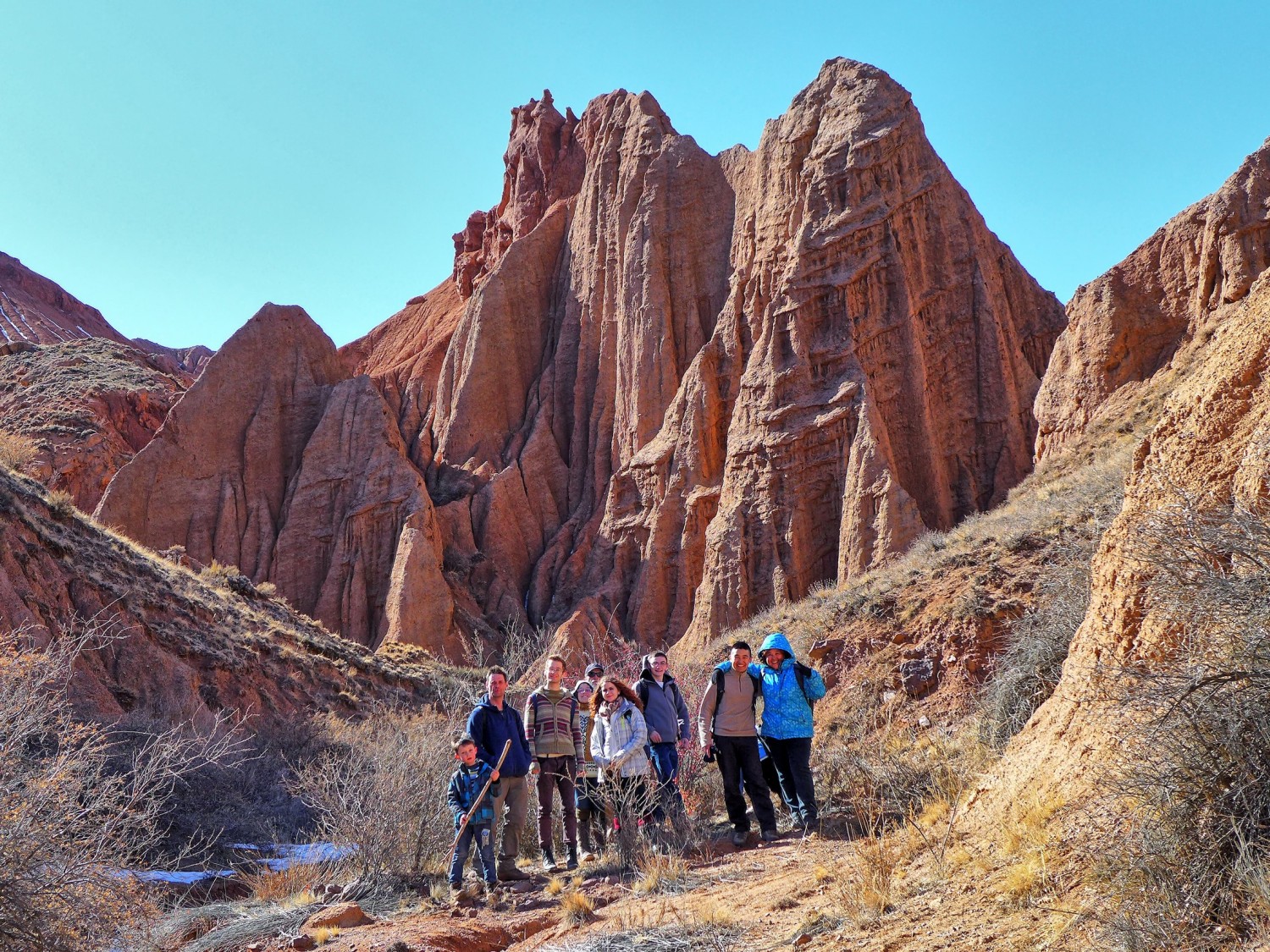
Day Trips from Bishkek
Kyrgyzstan is a small country that abounds in natural beauty – many great locations are just a short drive away and can be experienced on a surprisingly small budget. Here are several that students on our study abroad programs in Bishkek recommend! Issyk-Ata Hot Pools 1 Hour Outside Bishkek; ~$20 budget Review by Mikaela Peters […]
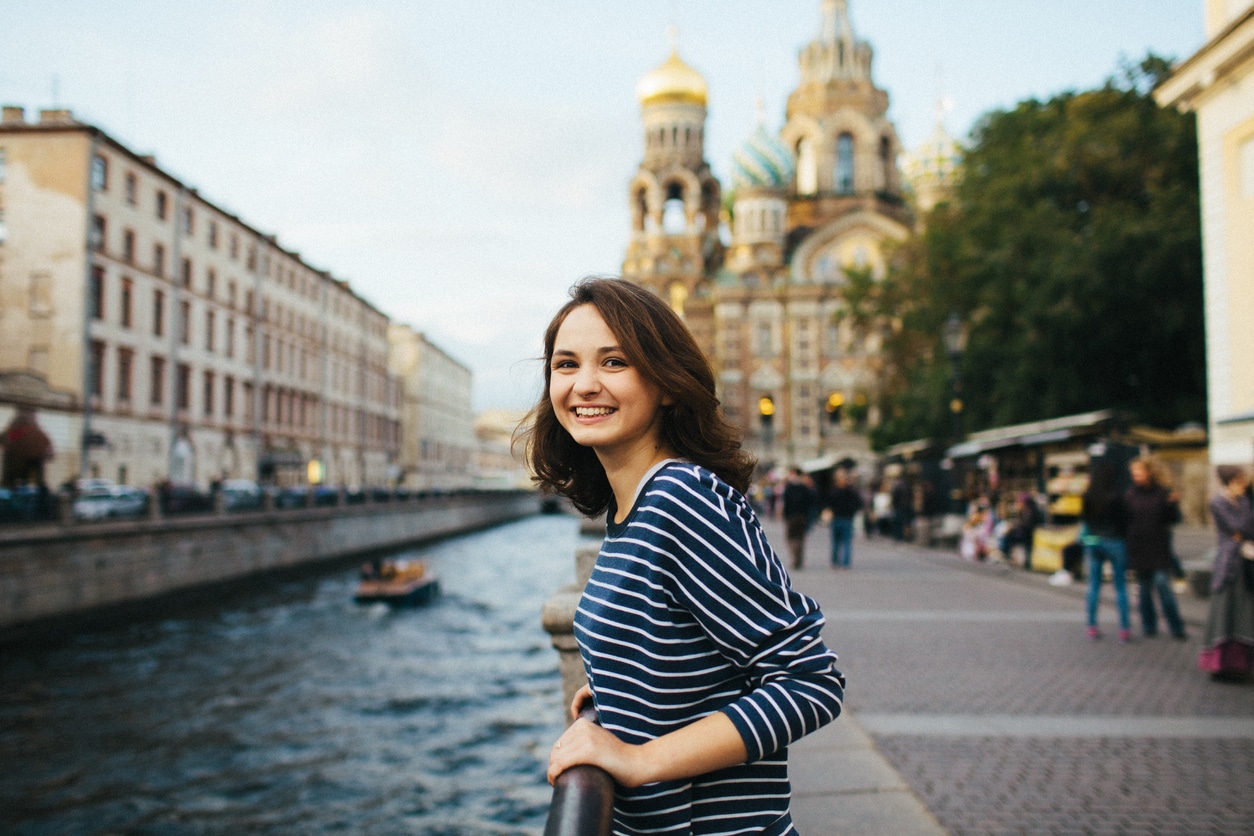
Russian for Travelers: Transport and Hospitality
Russia’s two major capitals are largely tourist friendly. Much of the metro systems and city navigation are available in English. Many restaurants have English-langauge menus and even waitstaff that speak a little English. However, not everywhere will English get you by in a Russian-speaking country. This bilingual resource hopes to build students’ vocabulary skills and […]
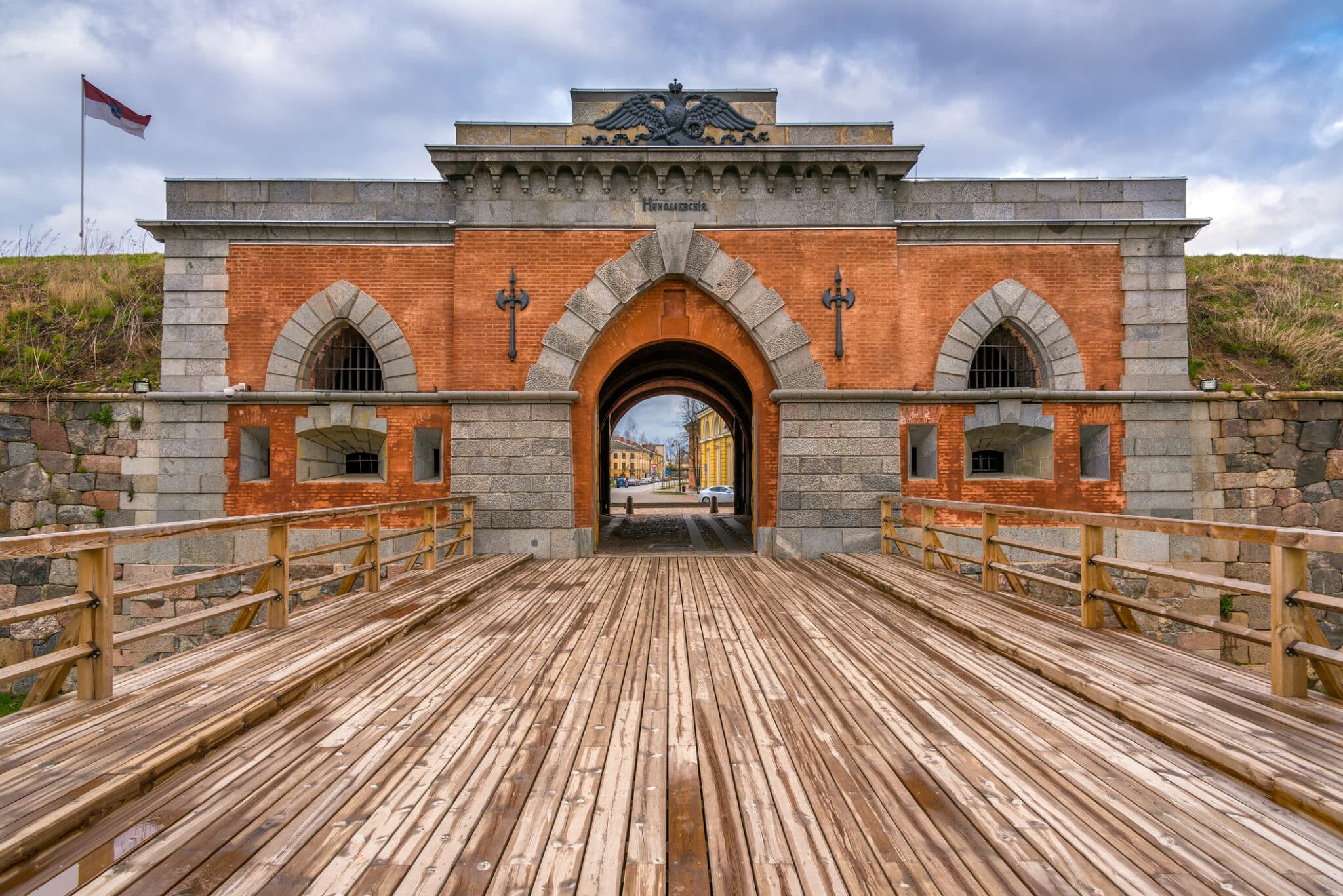
Travel Guide to Daugavpils
Arrayed along a curve in the stately Daugava River a three-and-a-half hour train ride from Riga, Dauvapils is Latvia’s second-largest city. It has a small, walkable city center with multiple peaceful parks, historic churches representing multiple religious traditions, a few small but high-quality museums and a unique Napoleonic-era fortress. Daugavpils is primarily a Russian-speaking city, […]

